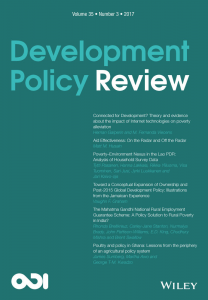Catching “Affluenza:” The role of money in Criminal Justice

Retrieved from http://www.slate.com/articles/health_and_science/medical_examiner/2013/12/ethan_couch_affluenza_defense_critique_of_the_psychology_of_no_consequences.html
The prosecution of 16 year old Ethan Couch has garnered considerable media attention in the past two weeks. Couch was accused of killing four pedestrians while high on valium and under the influence of alcohol. With a truck full of friends, Couch crashed into a group of pedestrians. The outcry from this case is twofold. First, Couch’s defense attorney argued that he could not be held fully responsible for his actions because he suffered from “affluenza.” Second, this defense worked and Couch was found guilty but only sentenced to 10 years under correctional probation. Couch, 16, was sentenced to 10 years under correctional probation for his actions. Couch never denied his actions, rather his defense argued that Couch’s dysfunctional upbringing was the reason for his actions and he deserves therapy over incarceration.
During the trial, the defense called a psychologist as their main witness. The psychologist stated that Couch suffered from affluenza. Couch developed affluenza because his parents used their wealth to fix all the problems in their lives. During the trial the psychologist said that Couch “never learned to say that you’re sorry if you hurt someone. If you hurt someone, you sent him money.” The psychologist went on to suggest that Couch’s parents failed him and gave him too much freedom in life. The psychologist made this argument despite affluenza not being a recognized illness in the Diagnostic and Statistical Manual published by the American Psychiatric Association. The effects of parenting and wealth have long been documented as having strong associations with criminal behavior; but the courts consistently ignore the plight of the poor.
Scholars on the variability or disparity in sentencing have long documented patterns of institutionalized discrimination against the poor (Reiman & Leighton, 2010). The serious psychological problems of the poor are not taken into consideration, despite research showing that victims of years of abuse, neglect, and dire poverty. The research suggests that this particular case was special treatment for rich youth, who often go unpunished for their deeds (Chambliss, 1973). This same defense would not be available for a poor kid for two reasons. First, the poor youth would not have the money to hire a private defense attorney or pay for an expert witness. Second, the persistent othering of the poor in our society orients our worldview that the poor are somehow undeserving of leniency (Reiman & Leighton, 2010). In a large study of sentencing decisions, Chiricos and Bale (1991) found that individuals with similar offenses and similar prior records, unemployed defendants were more likely to be incarcerated while awaiting trial, and for longer periods, than employed defendants. They were more than twice as likely as their employed counterparts to be incarcerated on a finding of guilt, and defendants with public longer periods of jail time than those who could afford private attorneys.
The outcome of Ethan Couch’s action reveals multiple contradictions in the criminal justice system. Couch is seen as someone who could be rehabilitated from his upbringing and more importantly that he was worthy of rehabilitation. Juveniles should not be treated as adults, which mean they should not receive the same punishment as adults. It is a step in the right direction that the judge refrained from locking Couch up for the rest of his life. However, the Couch family’s wealth greatly influenced the determination that he was not responsible for his actions, a perspective not afforded to many youth who commit considerably less serious crimes. The demographics for the juvenile justice system indicate that many youth caught in the system were raised in equally dysfunctional families and were not taught how to behave, yet they still received stiff sentences. The outcome of this case presents an opportunity to begin a discussion on how the United States should treat its youth. From ensuring they have the social, financial, and emotional support needed to avoid making life-altering mistakes, to ensuring that juveniles lives are not engulfed by the criminal justice system when they make mistakes. Of course, for our approach to juvenile justice to change we must ensure that all youth benefit from these changes and not just the rich.
References
Chambliss, W.J. (1973). The saints and the roughnecks. Society, 11, 24-31.
Chiricos, T., & Bales, W. (1991). Unemployment and punishment: An empirical assessment. Criminology, 29, 701-724.
Reiman, J., & Leighton, P. (2010). The rich get richer and the poor get prison: Ideology, class, and criminal justice. Boston: Pearson.





1467-7660/asset/DECH_right.gif?v=1&s=a8dee74c7ae152de95ab4f33ecaa1a00526b2bd2)
1475-6781/asset/JSS.gif?v=1&s=377bb8e0c3d0fcf201f301ded7cf610142072c3e)
Greetings! Very useful advice within this post! It’s the little changes that will make the most important changes. Thanks for sharing!